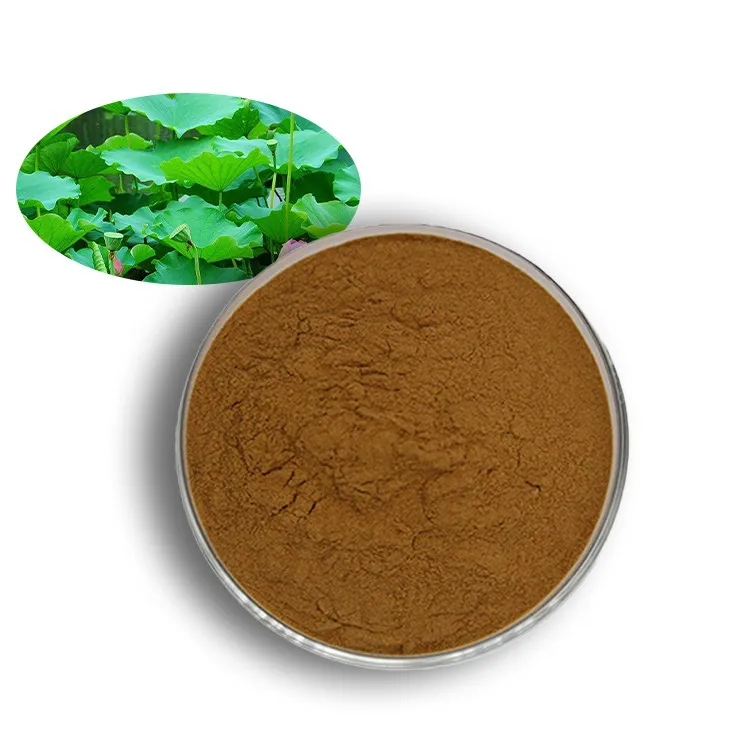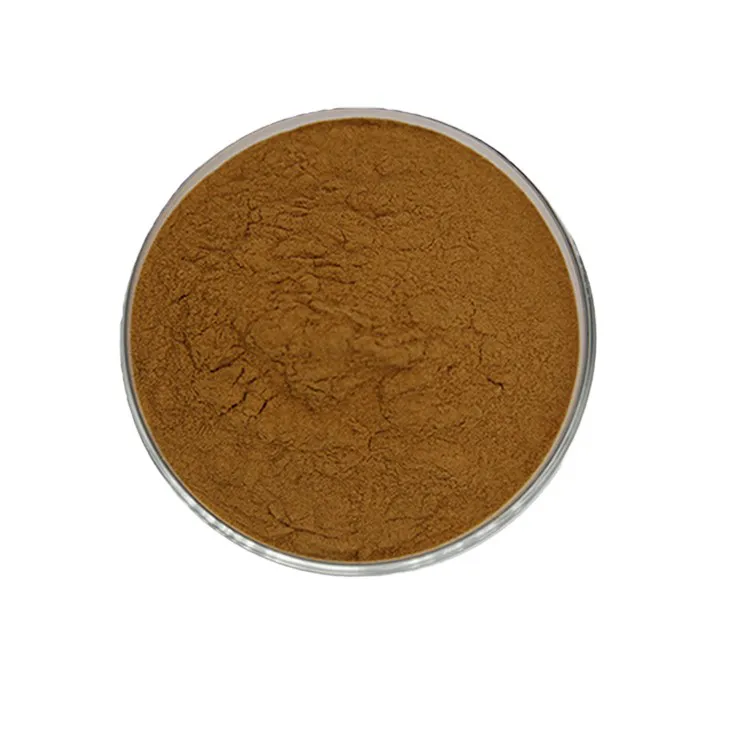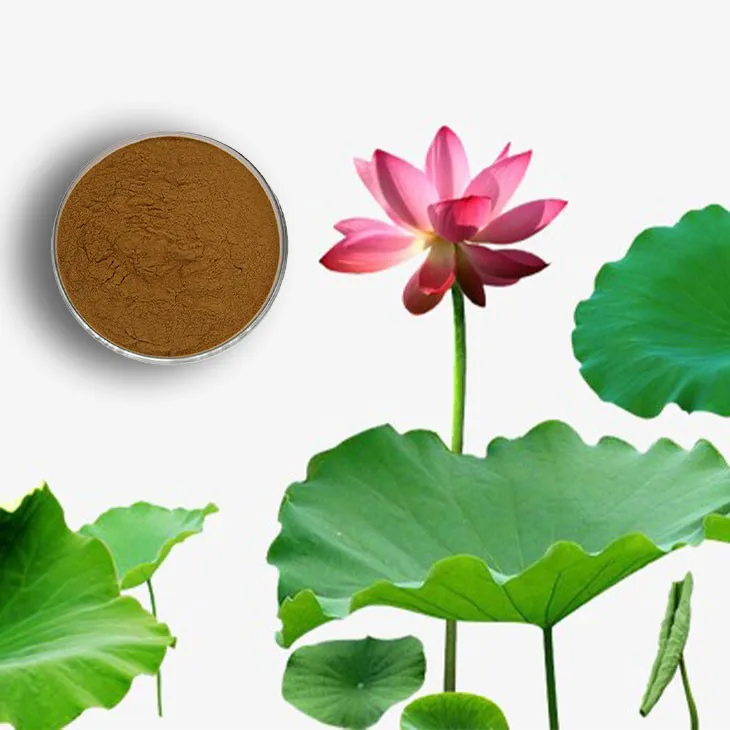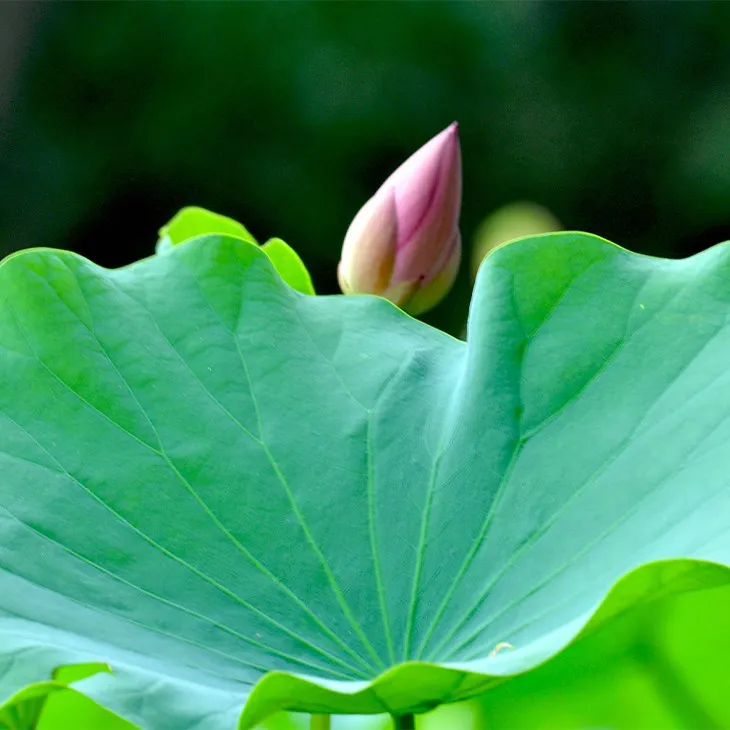- 0086-571-85302990
- sales@greenskybio.com
Seven Trends of Lotus Leaf Extract.
2024-12-19

1. Introduction
Lotus leaf extract has been gaining increasing attention in recent years due to its diverse potential applications. The lotus plant, known for its beauty and cultural significance in many Asian countries, has leaves that are rich in various bioactive compounds. These compounds are the basis for the many trends and developments in the use of Lotus leaf extract.

2. Health - related Trends
2.1 Weight Management
One of the most prominent trends in Lotus leaf extract is its use in weight management. Lotus leaf contains alkaloids such as nuciferine and liensinine. These alkaloids have been shown to interfere with lipid metabolism in the body. Studies suggest that they can help reduce the absorption of dietary fats and increase fat metabolism. For example, in some animal studies, rodents fed with diets containing lotus leaf extract showed a significant decrease in body weight gain compared to those on a control diet. This has led to the inclusion of lotus leaf extract in some dietary supplements targeted at individuals looking to manage their weight.
2.2 Antioxidant Properties
Lotus leaf extract is also recognized for its antioxidant properties. The extract is rich in polyphenols, which are powerful antioxidants. Antioxidants are crucial for the body as they help to neutralize free radicals. Free radicals are unstable molecules that can cause damage to cells, DNA, and proteins, and are associated with various diseases such as cancer, heart disease, and aging - related disorders. By consuming lotus leaf extract, either through dietary sources or supplements, individuals may be able to boost their antioxidant defenses. In vitro studies have demonstrated that lotus leaf polyphenols can scavenge free radicals effectively, showing potential for protecting cells from oxidative stress.
2.3 Anti - diabetic Effects
Emerging research has pointed towards the anti - diabetic effects of lotus leaf extract. Some of the bioactive compounds in the extract have been shown to regulate blood glucose levels. For instance, they may enhance insulin sensitivity in the body. In diabetic animal models, lotus leaf extract has been observed to lower blood glucose levels. This could be due to its ability to influence glucose uptake in cells or its interaction with enzymes involved in glucose metabolism. Although more research is needed in human subjects, the potential of lotus leaf extract in diabetes management is an exciting trend in the field of natural medicine.

3. Cosmetic Applications
3.1 Skin Whitening
In the cosmetic industry, lotus leaf extract is being explored for its skin - whitening properties. The extract contains compounds that can inhibit melanin production. Melanin is the pigment responsible for skin color, and excessive melanin production can lead to hyperpigmentation, such as dark spots and uneven skin tone. By using products containing lotus leaf extract, it is hoped that consumers can achieve a more even and lighter skin complexion. Some early - stage clinical trials have shown promising results, with participants reporting a reduction in the appearance of dark spots after using lotus leaf - based skin care products for a certain period.
3.2 Anti - aging in Skin Care
Another trend in cosmetic applications of lotus leaf extract is its use in anti - aging skin care. The antioxidant properties of the extract play a significant role here. As mentioned earlier, antioxidants in lotus leaf extract can protect skin cells from free radical damage. Free radical damage is one of the major causes of premature skin aging, leading to wrinkles, fine lines, and loss of skin elasticity. By incorporating lotus leaf extract into anti - aging creams, serums, and masks, cosmetic companies are aiming to provide consumers with products that can help maintain youthful - looking skin. Additionally, some studies suggest that lotus leaf extract may also stimulate collagen production in the skin, which is essential for maintaining skin firmness.

4. Food and Beverage Industry Trends
4.1 Functional Food Ingredient
Lotus leaf extract is emerging as a functional food ingredient. With its potential health benefits, it can be added to various food products. For example, it can be incorporated into health bars, breakfast cereals, or energy drinks. In the case of health bars, the addition of lotus leaf extract not only provides the potential health benefits such as antioxidant and weight - management properties but also gives a unique flavor profile. In some Asian cuisines, lotus leaves are already used in cooking, and the extract can be a more concentrated and convenient form to add to food products. This trend is driven by the increasing consumer demand for foods that offer both taste and health benefits.
4.2 Beverage Applications
In the beverage industry, lotus leaf extract has found its place in the development of new and healthy drinks. It can be used in herbal teas, where its unique flavor and potential health - promoting properties are a great addition. Lotus leaf tea has a long history in some Asian cultures for its supposed calming and detoxifying effects. In addition to traditional herbal teas, lotus leaf extract is also being used in the formulation of functional beverages. These may include sports drinks enhanced with lotus leaf extract for its antioxidant and anti - fatigue properties or slimming drinks that target weight - conscious consumers by leveraging the weight - management potential of the extract.

5. Pharmaceutical Research and Development
5.1 Drug Delivery Systems
Lotus leaf - like micro - and nanostructures have inspired research in drug delivery systems. The unique surface properties of lotus leaves, such as their super - hydrophobicity and self - cleaning ability, have been studied for the development of novel drug carriers. Scientists are exploring ways to mimic these properties in synthetic materials to create more efficient drug delivery vehicles. For example, nanoparticles coated with lotus - leaf - inspired materials could potentially improve the targeted delivery of drugs to specific cells or tissues, reducing side effects and increasing the efficacy of drugs. This area of research is still in its early stages but holds great promise for the future of pharmaceuticals.
5.2 New Drug Discovery
The bioactive compounds in lotus leaf extract are also being investigated for new drug discovery. As mentioned before, the extract contains alkaloids and polyphenols with various biological activities. These compounds could serve as leads for the development of new drugs. For instance, the anti - diabetic and anti - inflammatory properties of some of the compounds in lotus leaf extract may inspire the development of drugs for treating diabetes and inflammatory diseases. Pharmaceutical companies are increasingly interested in screening and characterizing these compounds to identify potential drug candidates. However, extensive research, including pre - clinical and clinical trials, is required to turn these potential leads into actual drugs.
6. Agricultural and Environmental Applications
6.1 Plant Growth Promotion
In agriculture, lotus leaf extract has shown potential for plant growth promotion. The extract contains nutrients and bioactive substances that can benefit plants. When applied to soil or sprayed on plants, it may enhance nutrient uptake, improve plant resistance to diseases and pests, and stimulate root and shoot growth. Some preliminary studies have demonstrated that certain components in lotus leaf extract can activate plant defense mechanisms against fungal infections. This could lead to a reduction in the use of chemical pesticides and fertilizers, which is in line with the trend towards more sustainable agricultural practices.
6.2 Environmental Remediation
Lotus leaf - inspired materials are also being explored for environmental remediation. The super - hydrophobic and self - cleaning properties of lotus leaves can be mimicked in materials for applications such as water purification. For example, membranes inspired by lotus leaves could be used to remove pollutants from water more efficiently. Additionally, the ability of lotus plants to grow in polluted water bodies has led to research on using lotus - related products, including lotus leaf extract, for phytoremediation. Phytoremediation is the use of plants to remove, degrade, or immobilize environmental pollutants, and lotus leaf extract may play a role in enhancing the effectiveness of this process.
7. Market and Consumer Trends
7.1 Growing Consumer Awareness
There is a growing consumer awareness of lotus leaf extract and its potential benefits. With the increasing popularity of natural and herbal products, consumers are more interested in learning about the properties of lotus leaf extract. This has led to a higher demand for products containing lotus leaf extract in the market. Social media and the internet have played a significant role in spreading information about lotus leaf extract, with many health and beauty bloggers promoting products based on it. As a result, more and more consumers are willing to try products such as dietary supplements, skin care products, and functional foods containing lotus leaf extract.
7.2 Market Expansion
The market for lotus leaf extract is experiencing market expansion. As research continues to uncover more potential applications and benefits of the extract, new products are being launched. This is not only limited to the traditional markets of Asia but is also spreading to Western countries. In addition to dietary supplements and cosmetics, the extract is being explored for use in other industries such as pharmaceuticals and agriculture. The increasing demand for natural and sustainable products is also fueling the growth of the lotus leaf extract market. However, challenges such as quality control, standardization of extraction methods, and regulatory compliance need to be addressed to ensure the healthy and sustainable development of the market.
FAQ:
Question 1: What are the main health benefits of lotus leaf extract?
Lotus leaf extract is believed to have several health benefits. It may assist in weight management as it is often associated with promoting fat metabolism. Additionally, it could have antioxidant properties which help in fighting against free radicals in the body, potentially reducing the risk of various diseases. Some studies also suggest that it may have anti - inflammatory effects, which can be beneficial for overall health.
Question 2: How is lotus leaf extract used in the food industry?
In the food industry, lotus leaf extract can be used as a natural flavor enhancer or preservative. Its unique flavor can add a distinct taste to certain food products. As a preservative, it may help to extend the shelf - life of food items by inhibiting the growth of microorganisms. Moreover, it can be used in the development of functional foods, such as those aimed at promoting health and wellness.
Question 3: What are the emerging research areas related to lotus leaf extract?
One emerging research area is its potential use in the treatment of metabolic disorders. Scientists are exploring whether lotus leaf extract can play a role in improving insulin sensitivity and regulating blood sugar levels. Another area is its effect on gut microbiota. Researchers are investigating if it can modulate the composition of gut bacteria, which is increasingly recognized as an important factor in human health. Additionally, there is interest in its potential as a natural remedy for skin disorders, such as its anti - aging and anti - acne properties.
Question 4: Can lotus leaf extract be used in cosmetics?
Yes, lotus leaf extract can be used in cosmetics. Its antioxidant properties make it suitable for anti - aging products, as it can help to prevent skin damage caused by free radicals. It may also have anti - inflammatory and antibacterial properties, which are useful in treating skin conditions like acne and eczema. Lotus leaf extract can be found in various cosmetic products, including creams, lotions, and serums.
Question 5: What are the challenges in the production of lotus leaf extract?
One challenge is ensuring the purity and quality of the extract. Contaminants from the growth environment of lotus plants, such as pesticides or heavy metals, need to be carefully removed. Another challenge is standardizing the extraction process. Different extraction methods can result in variations in the composition and efficacy of the extract. Additionally, the cost of production can be high, especially if sustainable and ethical sourcing of lotus leaves is required.
Related literature
- The Health - Promoting Properties of Lotus Leaf Extract: A Comprehensive Review"
- "Lotus Leaf Extract in the Food and Cosmetic Industries: Current Applications and Future Prospects"
- "Emerging Research on the Medicinal Potential of Lotus Leaf Extract"
- ▶ Hesperidin
- ▶ citrus bioflavonoids
- ▶ plant extract
- ▶ lycopene
- ▶ Diosmin
- ▶ Grape seed extract
- ▶ Sea buckthorn Juice Powder
- ▶ Beetroot powder
- ▶ Hops Extract
- ▶ Artichoke Extract
- ▶ Reishi mushroom extract
- ▶ Astaxanthin
- ▶ Green Tea Extract
- ▶ Curcumin Extract
- ▶ Horse Chestnut Extract
- ▶ Other Problems
- ▶ Boswellia Serrata Extract
- ▶ Resveratrol Extract
- ▶ Marigold Extract
- ▶ Grape Leaf Extract
- ▶ blog3
- ▶ blog4
- ▶ blog5
-
Pure 85% Tomentil Extract.
2024-12-19
-
Dandelion Root Extract
2024-12-19
-
Lemon Balm Extract
2024-12-19
-
Mulberry leaf Extract
2024-12-19
-
Purple Sweet Potato Extract
2024-12-19
-
White mustard seed extract
2024-12-19
-
Konjac Powder
2024-12-19
-
Motherwort Extract
2024-12-19
-
Curcuma Longa Extract/Turmeric extract
2024-12-19
-
Tormentil Extract
2024-12-19
-
Calendula Extract
2024-12-19





















